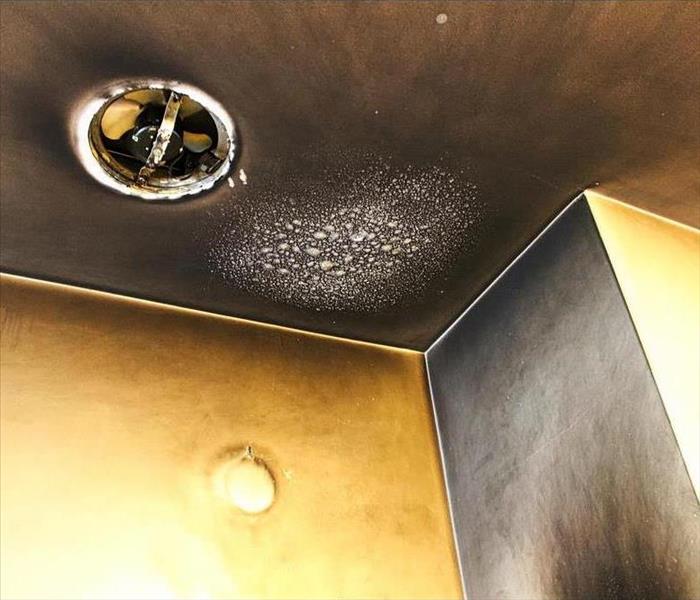Preventing Kitchen Fire Damage
3/30/2020 (Permalink)
 Cooking is the leading cause of home fires. Prevent kitchen fire damage with these tips. And call SERVPRO if you need fire damage restoration service!
Cooking is the leading cause of home fires. Prevent kitchen fire damage with these tips. And call SERVPRO if you need fire damage restoration service!
In the midst of a global pandemic caused by the coronavirus known as COVID-19, we're all staying home at much as possible. Social distancing mandates require restaurants to shut down their dining rooms. And while we want to support local businesses, we can only afford so much takeout (#GreatAmericanTakeout).
So we're also cooking at home a lot more. And the more we use our kitchens, the greater the risk for sparking a kitchen fire. In fact, cooking is the leading cause of home fires according to National Fire Protection Association (NFPA).
So here are a few tips to ensure you don't compound the challenges of a quarantine with a fire damaged kitchen!
Pay Attention
The most obvious and important thing we can do to prevent kitchen fire damage is to pay attention to our cooking.
That can be easier said than done. We live in a multitasking world. While we're cooking, we're probably wrangling children, cleaning up messes and dealing with the constant draw of TV and smartphone screens.
And a lot can go wrong when our attention is divided. We might leave a burner on too long. A pot can boil over. We can accidentally bump a misplaced pan handle. Oven contents can burn.
According to the NFPA, two-thirds (66%) of cooking fires begin with food or other cooking materials igniting. Unattended cooking is a contributing factor in 31% of home cooking fires.
And don't forget to take care that flammable materials stay clear of the burners. Bathrobes, long hair or pot holders can all catch fire if they get to close to the heat.
So stay close and stay focused to minimize accidents and give yourself a chance to quickly recover from those that do happen.
Know Your Fire ABCs
Water and fire extinguishers are both vital tools for mitigating fire damage. But which one you should use depends on the fire's fuel, and using the wrong one can spark bigger problems.
For example, you should never use water to put out a grease or electrical fire. Splashing water can actually spread the grease and ignite other surfaces. And water is a conduit, so pouring water on an electrical fire can conduct the electricity to other surfaces or even yourself.
Best bet to put out a small grease fire is to smother it. You can use the lid of a pan, a baking sheet or baking soda. Baking soda also works for electrical fires. And if you can safely unplug the source, do so to cut off the current.
Keeping a fire extinguisher on had is also a good idea, especially for larger fires. You'll want a multipurpose extinguisher labeled ABC to cover a variety of types, including paper, cloth, grease and electrical fires.
Test Smoke Detectors
While the flames themselves consume and destroy, fire damage isn't confined to the fire itself. Smoke and soot from the chemicals expelled by a fire can also cause significant property damage.
To prevent smoke damage, test and ensure your home's smoke detectors are in good working order. At least one smoke detector should be positioned near, but outside, your kitchen. Consider it a sort of early warning system for preventing more extensive kitchen fire damage.
It's important to have smoke odors and soot damage quickly and properly cleaned. Soot is acidic and corrosive and can result in far worse damage if left unaddressed.
Fine particulates from smoke can be sucked into HVAC systems and spread throughout your property. Those particulates can cause mild to severe breathing difficulties if they're not properly cleaned.
Kitchen Fire Damage? Call SERVPRO!
If the worst happens and your property suffers damage from a kitchen fire, call SERVPRO of North Hollywood right away. We're here to help, 24/7. Our highly-trained and certified fire damage restoration technicians clean up, deodorize and restore your property "Like it never even happened."
P.S. Rest assured our technicians are following the CDC's guidelines. We use personal protective equipment (PPE) to protect ourselves and you while working on your property. Learn more about our proactive cleaning and disinfection services here.






 24/7 Emergency Service
24/7 Emergency Service